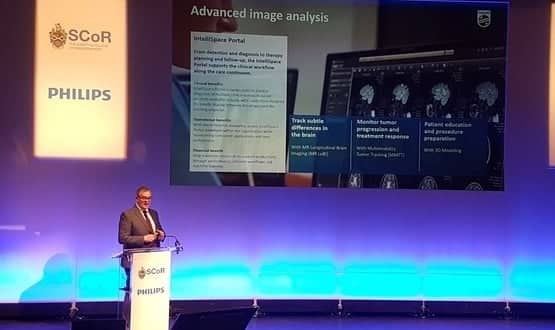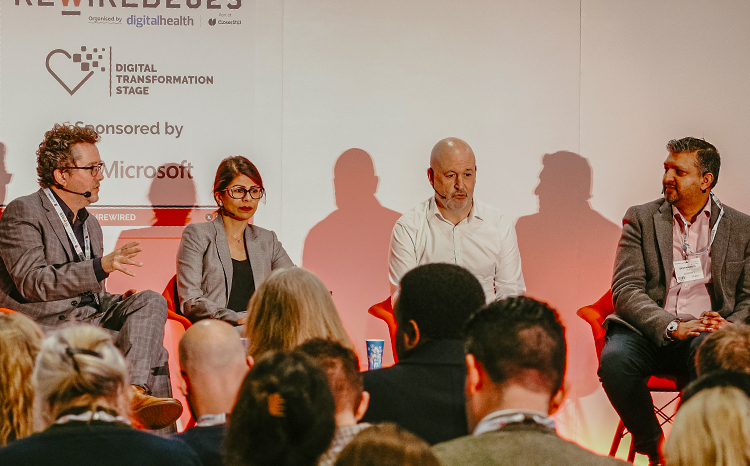Using AI to create our ‘digital twin’ will ‘improve precision diagnostics’
- 21 May 2019

Precision diagnostics is the future of healthcare and artificial intelligence (AI) can be used to create our “digital twin” to achieve this, according to the health systems leader at Philips.
Speaking at the 9th National Conference for Radiology Managers, Simon McGuire outlined Philips view on the future of AI in healthcare.
In the last 10 years, health tech has focused on improving scanning capabilities and data quality but now we have vast quantities of data on each individual patient, McGuire told the audience in London
Data is collected from doctors appointments, hospital visits, apps, wearables and more. In a ten year period as much as 8 trillion bytes of data are collected on an average patient, he said.
“We believe in order to harness all this information and data, we should be thinking about creating a digital twin of ourselves so all of this information is brought together,” he said.
“We are working on how we can use AI to enhance that workflow and decision support, so we can get to precision diagnosis and get it right first time without the variability that we see today.
“We believe the future is in precision diagnosis, and that’s by combining radiology, pathology, genomics and longitudinal data to show outcomes of the patient.”
Philips is already working with several trusts to deliver a number of projects.
In July 2017 a Philips monitoring system which provides automation of early warning system scores was launched in the National Hospital for Neurology and Neurosurgery in London. It allows nurses and the patient’s care team to respond and intervene earlier to deterioration.
Later that year the company expanded its eHealth business after acquiring VitalHealth, a digital health company specialising in population health management.
The acquisition of VitalHealth was intended to complement Philips’ purchase of Wellcentive in 2016, which brought additional health informatics and analytics capabilities to the company.
In November 2018 County Durham and Darlington NHS Foundation Trust secured a 14-year contract with the company to help maintain its radiology equipment.
The company also has it’s own electronic patient record (EPR), PACS and RIS system and an interactive app to help spot the signs of breast cancer.
Mr McGuire also spoke of the importance of using open platforms to allow different systems to integrate.
“We, at Philips, know that we will not be able to solve all the world’s healthcare problems, all of the imagine problems… all of the issues ourselves,” he said.
“Everything we do is about trying to make sure we have open platforms and interoperability.
“Many of our products coming down the line, and some of our software packages, are agnostic. They can take any information in from our competitors systems, new technologies that are coming through and vice versa, our systems can send data out.”





